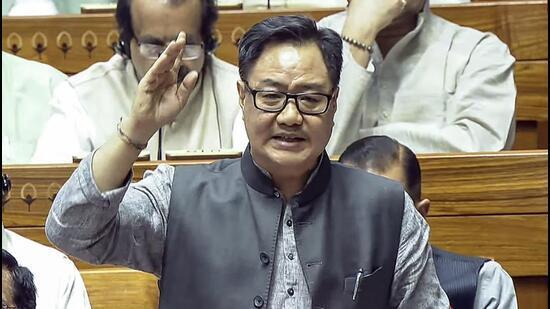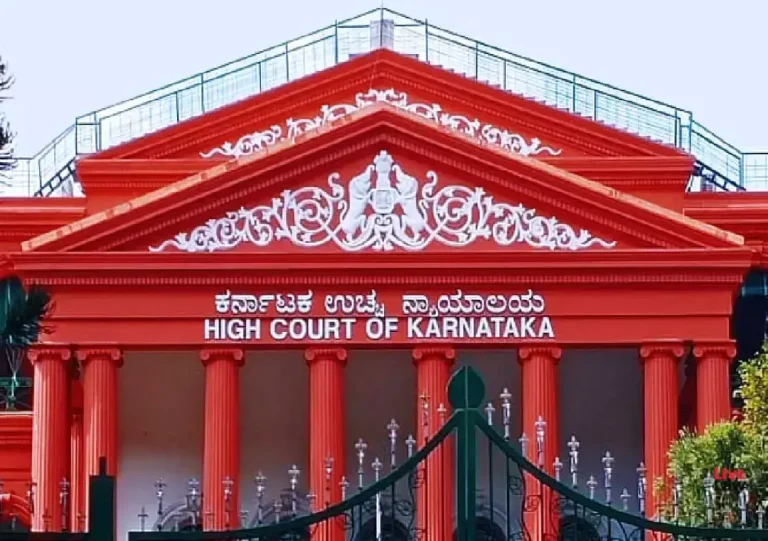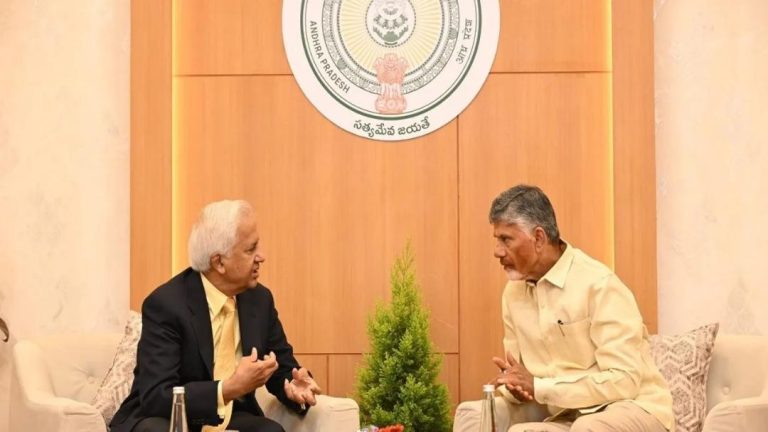
Opposition Creates Confusion & Leaves House: Rijiju in Rajya Sabha
The Rajya Sabha has recently witnessed a heated debate on the Waqf (Amendment) Bill, with Union Minister Kiren Rijiju criticising senior members for creating confusion in the House without staying back to listen to the replies. The minister’s remarks were made during the discussion on the bill, which aims to improve the management and administration of Waqf properties.
Rijiju’s outburst was directed at senior member Kapil Sibal, who had raised issues with the bill and compared the properties of Waqf bodies with those of other religious bodies. The minister expressed his disappointment at Sibal’s move, saying that it had created confusion among the members and was not helpful in arriving at a consensus.
“This is not the first time that senior members are raising issues and then leaving the House,” Rijiju said. “They create confusion and then walk away. This is not the way to conduct a debate.” He further added that the opposition members should stay back and listen to the replies from the government instead of creating confusion and then leaving the House.
Rijiju’s remarks have sparked a debate on the conduct of opposition members in the Rajya Sabha. Some members have argued that the opposition has a right to raise issues and question the government, while others have pointed out that the opposition should also stay back and listen to the replies to maintain the decorum of the House.
The Waqf (Amendment) Bill was introduced in the Rajya Sabha last month and is aimed at improving the management and administration of Waqf properties. The bill proposes to replace the existing Waqf Act of 1995 and is expected to bring in greater transparency and accountability in the management of Waqf properties.
The opposition has been critical of the bill, saying that it is not in the best interests of the Waqf bodies and will lead to the erosion of their powers. Sibal had raised several issues during the discussion, including the proposed changes to the composition of the Waqf Council and the powers of the Central Waqf Council.
Rijiju, however, defended the bill, saying that it was aimed at improving the management and administration of Waqf properties and bringing in greater transparency and accountability. He also pointed out that the bill had been widely discussed and was in the best interests of the Waqf bodies.
The debate on the Waqf (Amendment) Bill has highlighted the need for greater transparency and accountability in the management of Waqf properties. The bill is expected to bring in greater transparency and accountability in the management of Waqf properties, and it is hoped that it will lead to better management and administration of these properties.
In conclusion, Rijiju’s remarks have sparked a debate on the conduct of opposition members in the Rajya Sabha. While the opposition has a right to raise issues and question the government, it is also important for them to stay back and listen to the replies to maintain the decorum of the House. The Waqf (Amendment) Bill is an important piece of legislation that aims to improve the management and administration of Waqf properties, and it is hoped that it will lead to better management and administration of these properties.






